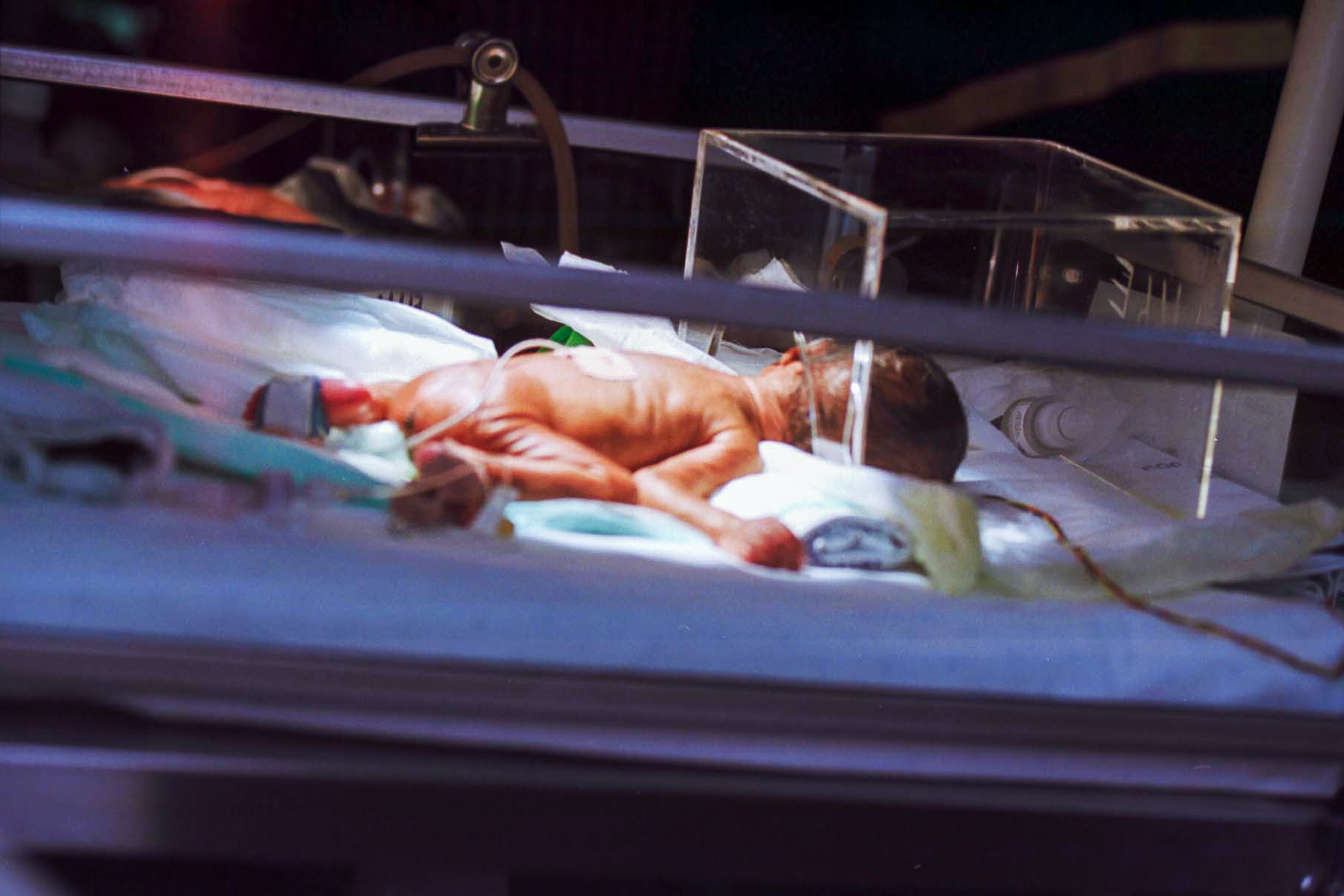NEC most often occurs in infants who are born before 32 weeks.
Necrotizing enterocolitis (NEC) is one of the most serious and common intestinal conditions among premature babies.
NEC occurs when large and small intestine tissue becomes inflamed or injured. This condition can cause the deterioration of the tissues in the intestines and a hole to form in the intestinal wall.
Babies who have NEC have intestines that cannot hold waste. This makes it easier for bacteria to get into the bloodstream, which can sometimes cause fatal infections. Waste can easily get into the infant’s abdomen and cause the child to become extremely sick. Sections of the baby’s intestines may have to be surgically removed. If you need to know if your baby is suffering from this condition, this information may be helpful.
Signs and Symptoms of Necrotizing Enterocolitis
A baby suffering from NEC may have the following symptoms:
- trouble eating
- a red or swollen belly
- food remaining in the stomach too long
- constipation
- dark or bloody stools
- unstable or low body temperature
- diarrhea
- green vomit
- lethargy
- apnea (periods of not breathing)
- slow heart rate
- low blood pressure
These symptoms can vary and could be similar to other digestive issues.
Causes of NEC
There is no main or single cause of NEC. Most of the time, doctors can’t find a specific cause for the condition. However, experts do believe these factors could contribute to NEC:
- too little blood flow or oxygen to the baby’s intestines at birth or shortly after
- a premature or underdeveloped intestine
- injury to the lining of the intestines
- intestinal infection, which can be bacterial or viral
- bacterial growth in the intestines, which can damage the intestinal wall
It is also important to note that baby formula can lead to NEC. Babies who are breastfed are less likely to develop this condition.
The condition can also occur in clusters and affect several babies being cared for in the same nursery. Some bacteria and viruses are common in babies with NEC. While babies cannot contract NEC from each other, they can catch the viruses or bacteria that lead to this condition. This is why NICUs take extra precautions to keep the area safe and sterile.

If you discover or suspect that your infant has Necrotizing Enterocolitis linked to the baby formula, you should contact a NEC baby formula lawyer as soon as you can. A lawyer familiar with NEC will look over your infant’s medical records and symptoms to determine if you have a case. Your attorney will also gather evidence to make a convincing case and help you and your family get the settlement you deserve. The compensation you receive can help you get the necessary medical treatment your baby needs.
Who is More Likely to Develop Necrotizing Enterocolitis?
NEC most often occurs in infants who are born before 32 weeks. However, full-term babies suffering from other health conditions such as heart defects can also develop NEC. Symptoms of NEC usually become evident within the first month of life.
Diagnosing NEC
Doctors will take an X-ray of the baby to observe gas patterns in the abdomen. The X-ray images will look streaky or bubbly in the intestinal walls. If the NEC is severe, the air that leaves the intestines will appear in the liver and abdomen. A physician may insert a needle into the baby’s belly to extra fluid and determine if there is a hole in the infant’s intestine.
NEC Treatment and Prognosis
After an official diagnosis, NEC is treated right away. Some babies will have to stop feeding temporarily, and a tube may be inserted through the mouth or nose into the stomach to get rid of excess air and fluid in the intestines and stomach. Doctors may also prescribe an antibiotic to begin treating the infection. Many infants with NEC will need an IV to replace nutrition, electrolytes, and fluid. Babies with severe NEC may need to go into surgery right away.
While the prognosis is good – up to 80% of all NEC babies survive if treated on time, this condition has long-term consequences. The infants might have to deal with health issues well into their adulthood. For this reason, if you suspect the baby formula or a birth injury led to your baby’s illnesses, it is best to discuss matters with a lawyer and try to seek compensation. A settlement negotiation or a trial might award you a payout large enough to secure a healthy, normal life for your child.


Join the conversation!